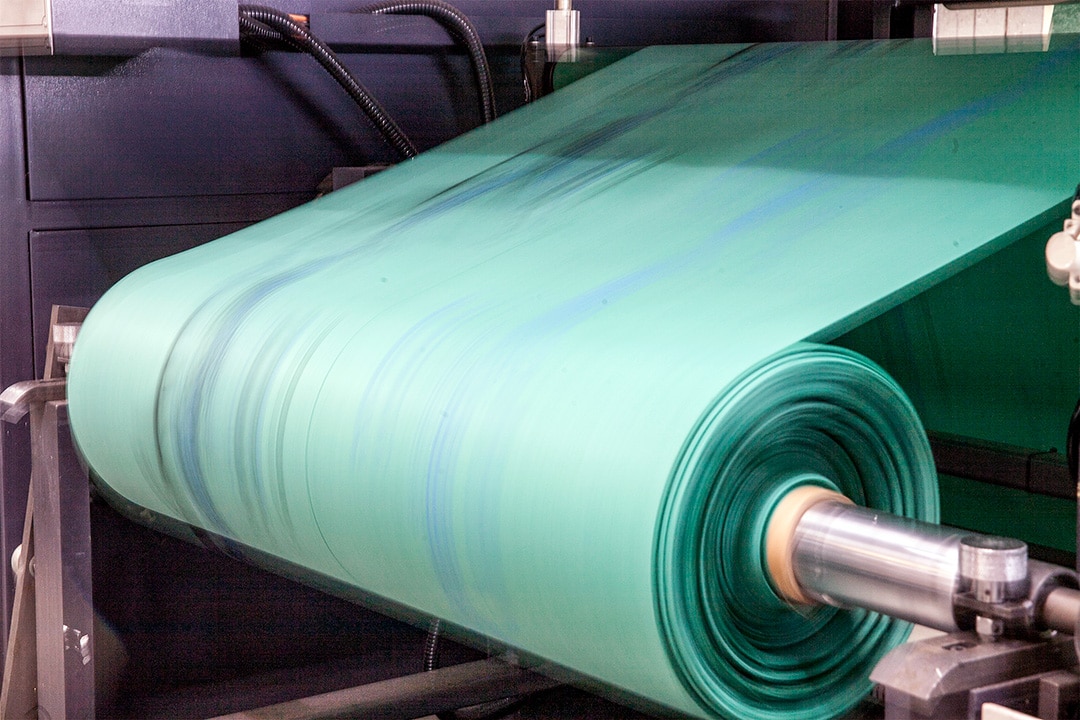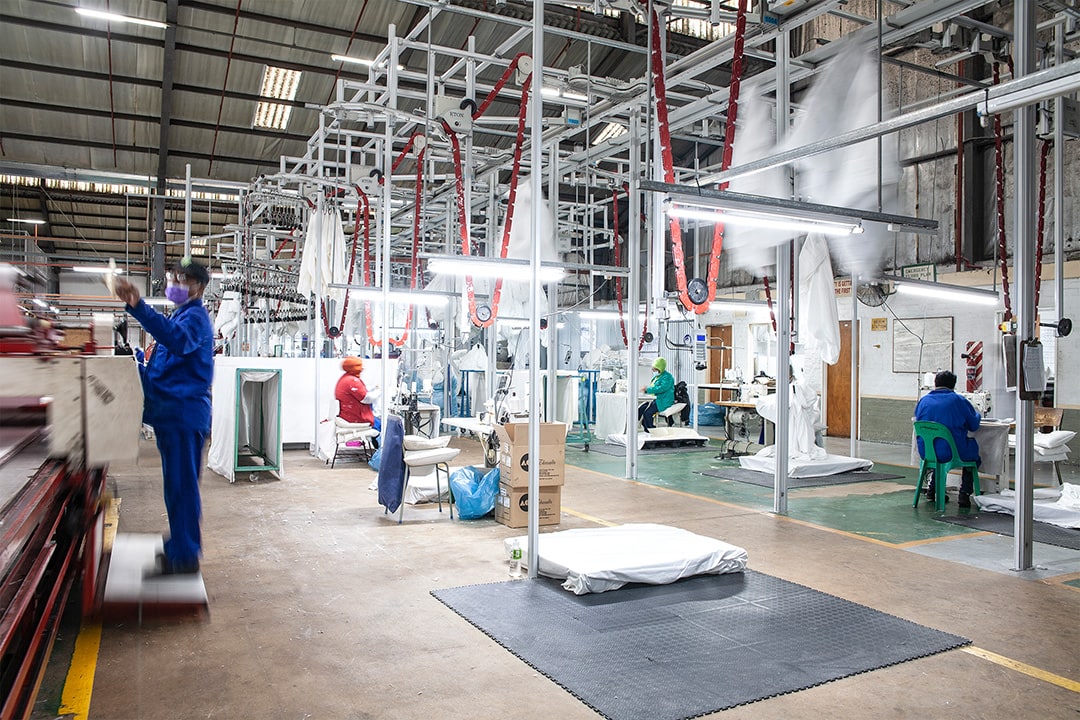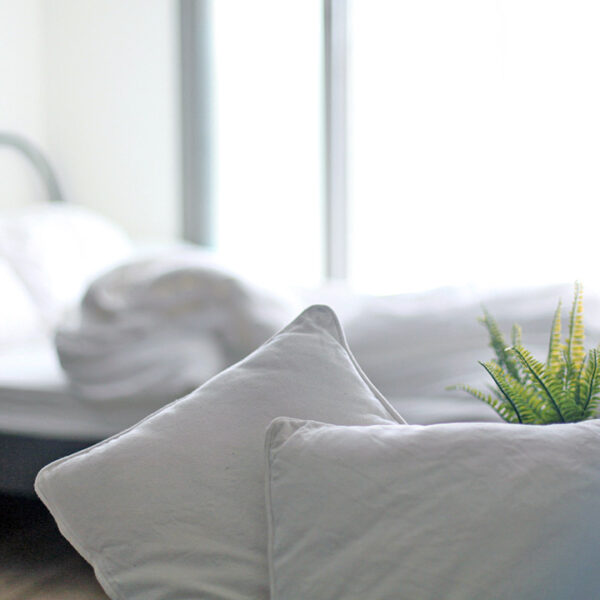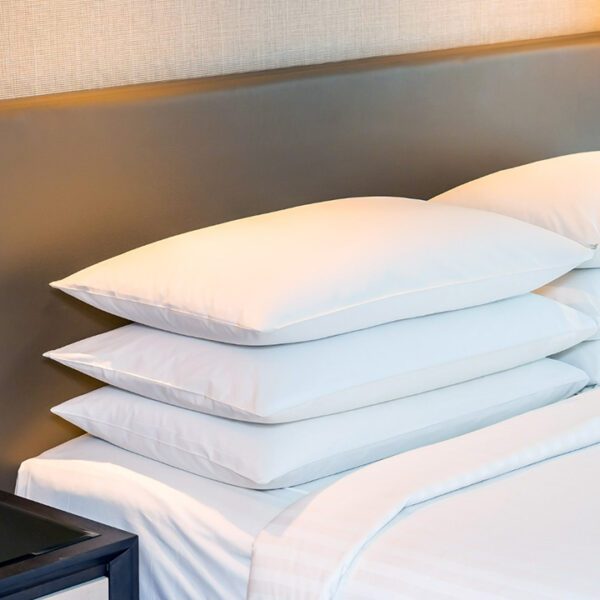Non-woven textiles are made from polymer threads using various methods, including stitch-bonding. These textiles are sustainable, lightweight and incredibly durable, which is why they’re used to make recycled shopping bags, window blinds, footwear and even eco-bricks.
Romatex is a leading manufacturer and supplier of stitch-bonded non-woven textiles in South Africa. Our facility in Cape Town produces 24 million square metres of this fabric every year, which is enough to keep over 54 million plastic bottles out of landfills and the environment.
We use recycled polyethylene terephthalate (rPET) to make our stitch-bonded non-woven textiles, which are then used for various end products. The colours available include beige, green, white and black, but we also offer custom printing and dyeing on bulk orders of fabric.

Non-wovens have unique benefits
These textiles have several key advantages thanks to their unique properties. Firstly, they are lightweight, which makes them easier to handle, cheaper to transport in bulk and highly versatile in their uses. In addition, non-woven textiles are very durable with a high tear strength, which means they can withstand heavy use for a long time before wearing out.
They are also sustainable as they are made from recycled materials. Once they have reached their end of use, they can be readily disposed of for recycling. As a plastic-based textile, non-wovens are also good at repelling water, which is why they are often used for waterproofing membranes and insulation.
However, some non-wovens can be more breathable. The nature of the stitch-bonding method means that the textile allows air to pass through. This is ideal in footwear applications and home textiles, where any moisture needs to evaporate quickly to prevent odours and mould.
Non-woven textiles vary in hardness; some are very flexible and soft, like recycled shopping bags and kitchen cloths, while others are stiff and firm, like vertical window blinds. This increases their versatility – lending the textiles to a wider range of applications. All of them are resistant to wrinkles unless creases are ironed into the textile.

Why consider non-woven textiles?
All of the above benefits highlight just how versatile non-woven textiles can be. They can be manufactured with completely opposing properties, which makes them a valuable consideration for businesses that produce goods from fabric.
Before ordering non-woven textiles, be sure to have a consultation with a reliable manufacturer. This will allow us to ascertain your needs, specifications and end-use, and provide you with the ideal type of non-woven textile.
Romatex is able to supply bulk quantities of stitch-bonded non-woven materials to businesses in South Africa. For additional properties, such as waterproofing or flame resistance, be sure to let us know.
What’s more, as an eco-friendly textile, stitch-bonded non-woven fabric is good for your green initiatives and environmental ratings. For more information on our various products and textiles, please contact us today.
___
Romatex has been a leading manufacturer and supplier of stitch-bonded non-woven materials and homeware for over 50 years. Romatex is a Level 2 B-BBEE company that is owned by Deneb Investments Limited, a subsidiary of Hosken Consolidated Investments (HCI), which is listed on the Johannesburg Stock Exchange (JSE).
Our head office is based in Cape Town but we have branches in Gauteng, KwaZulu-Natal, the Eastern Cape and the Free State. For more information about our products, please contact info@romatex.co.za. Follow us on Facebook, LinkedIn and Instagram for our latest news and industry insights.

